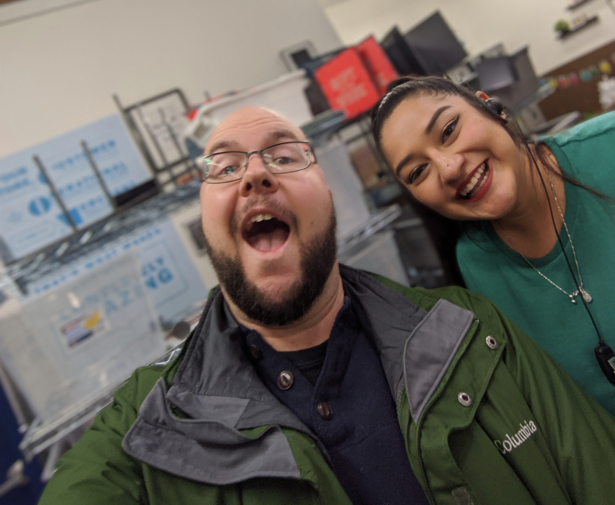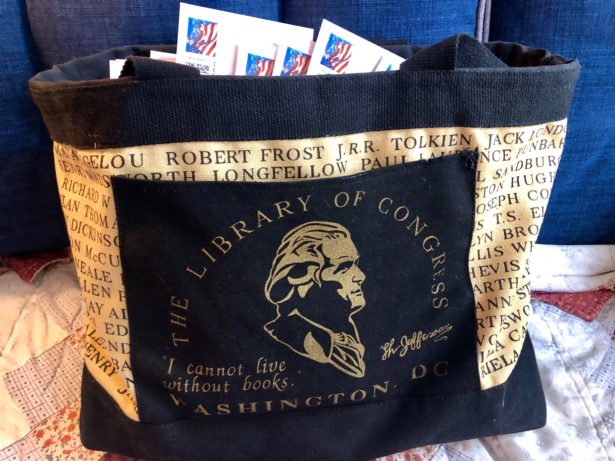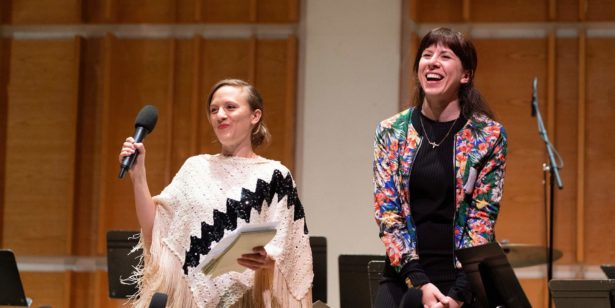
Helping Queer Writers And Students Connect
A volunteer position becomes a full-time job
Novelist Monica Carter first got involved with Lambda Literary, a nonprofit organization that works in support of LGBTQ writers, around 2012, when she was living in Los Angeles. In applying to participate in their summer retreat for emerging voices, she became familiar with the organization’s work. “Then I really wanted to work with them and volunteer just in any way possible,” she says.
When she spoke with the executive director at the time, he mentioned that the organization was working with the National Council of Teachers of English (NCTE), which wanted to introduce queer writers into their curriculum. But there was no one at Lambda to lead the effort. “So I said, ‘Well, I’ll do it,'” Carter recalls. Little did she know at the time that it would become a two-year volunteer effort, and that that work would lead, years later, to a full-time job running the Lambda Literary LGBT Writers in Schools program that brings queer writers into schools across New York City to talk about their work and experience.
The job was not exactly glamorous when she started. “It was just a lot of reaching out to all the queer writers that I had known from my day job, which was working at Skylight Books, and the writers I thought really had an impact in queer literature,” Carter told Good Turns recently. “At that time, we’re talking almost ten years ago now, it was much different than it is now. I think within the queer community people knew who these writers were, but outside of that probably not so much.”
“Having a successful writer come in that’s a reflection of who they are, that is really important”
“Mainly we were working with high schools, so my partner at NCTE, he was trying to put the word out to get teachers interested, and they would contact me, and I would try and find an author whose work they would respond to,” Carter says. “That’s how we started doing it.”
“At first it was slow going, but then it picked up, and I was doing little video interviews with some of the authors to post to the website and that kind of thing,” Carter says, “It was a much different iteration than it is now. But it had started to grow into something there was a need for. And it turned out that one of the board members at Lambda had a good relationship with the Department of Education in San Diego, and so they reached out about bringing this program there.”
The partnership with the San Diego school system turned the initiative from a set of informal relationships that Carter had developed into a real program—but then Carter and her wife moved to London. For two years she had little to do with the program other than watching it develop from afar. But then, just as the couple was moving back to the United States, Lambda was in the process of launching the LGBT Writers in Schools program in New York, and Carter got tapped to lead that effort.
“The first two years were volunteer and kind of the germination of what the program is now,” Carter says, “Now it is a grant-funded program that goes to all five burroughs, K through 12, with 80 visits in the school year, and we get new authors every year, as well as returning authors. We work with publishers to provide free books to the students for all 80 school visits. The author comes in and does an hour visit with the students after they’ve read the work.”
Among the authors who’ve participated are Garrard Conley (author of Boy Erased), Darnell Moore (author of No Ashes in the Fire), and the playwright Kate Scelsa, among others. “Usually there’s a lot of Q&A that relates to anything from the queer aspect of the the novel or creative work to writing in general to publishing. A lot of students are moved to create artwork based on what they’ve read, and the author’s life or experience. And in the end the author signs the books for the students, who get to keep the books,” Carter says.
“The statistics for queer students as far as depression and bullying and suicide, they’re all higher,” Carter points out. “So having a successful writer come in that’s a reflection of who they are, that is really important, so they can see that people do succeed, whatever their challenges might be in a school climate.”
Both the volunteer work and the full-time job have been fulfilling, Carter reports. “It felt great when I was volunteering, just because I felt like I was able to give queer writers an opportunity to interact with students, and with people that were studying their work, and that was very gratifying,” she says. “It was a labor of love in that fashion, because it just really hadn’t been done, and it was something that I think gave notice to writers who should be noticed.” And it’s gratifying for Good Turns to be able to give notice to the person who put in all that labor. So the next time you’re looking for something to read, why not look to Lambda Literary’s reading list? It might be a small gesture toward deepening our understanding of one another, but arguably an important one.
Posted July 16, 2019





